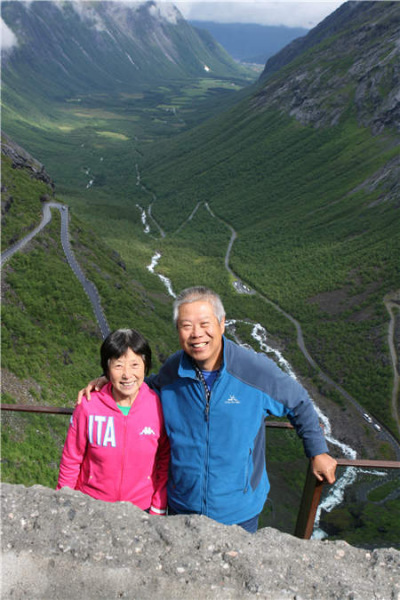
Zhang's friend Wang Renhe designed his own vehicle and then hired a domestic company to manufacture it in 2006.
The 61-year-old retired university professor from Jiangsu province's capital, Nanjing, points out that many Chinese mistake the lifestyle as reserved for the rich.
"We save lots of money on food and accommodation, and can drive to scenic spots that are hard to reach by public transportation," Wang says.
"I'm confident about China's RVing because of government support and growing awareness."
He drove three times to the base camp of Qomolangma, known as Mount Everest in the West.
"The world becomes your backyard garden (with RVs)," he says.
His wife says it has changed her.
"You learn things you can't in school," 62-year-old Zhou Xiaojing says.
"It has broadened my horizons. The past decade has been more colorful than my first five."
The challenges that come with RVing are part of what make it worthwhile, she believes.
"Flying places is easier," she says.
"But RVing's fun is the process. We face many difficulties, like language. But we feel joy and a sense of achievement through resolving them."




















































